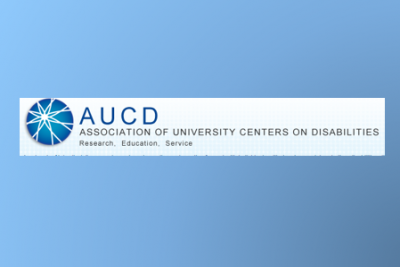University Centers of Excellence in Developmental Disabilities (UCEDDs) and Leadership Education in Neurodevelopmental and Related Disabilities (LEND) programs
Parent centers already refer families to UCEDDs and LEND programs or otherwise have relationships with them, serving on advisory boards and collaborating on partnerships. Here are three reasons for specifically informing military families about these programs and suggestions for outreach:
Advance, state-specific information
Over the past year, the Military Family Online Support discussion group concluded parent centers can play a strong role helping military families moving to a new duty station. Families need information in advance on school systems, state-specific practices in special education, names and contacts for important state agencies and the like. Advance information can help families reduce the impact of interrupted services and supports.
Because there are nationwide networks of UCEDDs and LEND programs they’re a good addition to any “resource lists” that parent centers highlight for military families: 67 UCEDDs with at least one in every state and some US Territories, and 52 LEND programs in 44 states with six states and three US Territories receiving help through partnerships.
Making Choices Based on Services
Families in the Exceptional Family Member Program (EFMP) often get a choice of potential duty locations when it’s time for their service member to be assigned to a new duty station.
Each UCEDD and LEND program offers a range of typical core services as well as unique programs and projects. Military families can include information about these services as they prioritize assignment locations.
Will They Know to Look?
Military parents quickly become diligent researchers when they have a child or youth with disabilities and will check out schools and installation services to help them make a choice. However, they may not know what to look for in terms of community organizations and may rely on EFMP Family Support to connect them.
Although many EFMP professionals do superb jobs referring families to “civilian” programs, not all such staff are fully informed about programs like UCEDDs and LEND programs.
Ways to Share
- Because military families look online first to find services, it’s helpful to share information and links about your state’s UCEDD(s) and LEND program(s) in online formats.
- We also suggest including the nationwide directory links:
Directory-University Centers for Excellence in Developmental Disabilities (UCEDDs)
- For your convenience, we’ve created a Fact Sheet for families to which you can add your Parent Center’s information.
Ideas for use:
- Add your state’s UCEDD(s) and LEND program(s) to your parent center’s Resource listings
- Add to your version of “Military Families, Welcome to Our State” or your website’s “military family resources” page
- Link the Fact Sheet on your website and social media
- Use the Fact Sheet in your newsletter
- Are EFMP staff at your state’s installations familiar with UCEDDs? If not, share the directory link and link to your state’s UCEDD. EFMP families usually check in with EFMP Family Support at a new location. You could also offer them the quick fact sheet for families for their own use—with your parent center logo and contact information on it!
- We’ve added the directory links to Post-High School Transition Resource and its handout, so it’s available to transition-age military youth and their parents.
To see resources military families seek when prioritizing new duty locations, see “Military Families, Welcome to Our State” a collaborative resource developed by the Military Family Support Discussion Group of parent centers and Branch-MTPAC.

